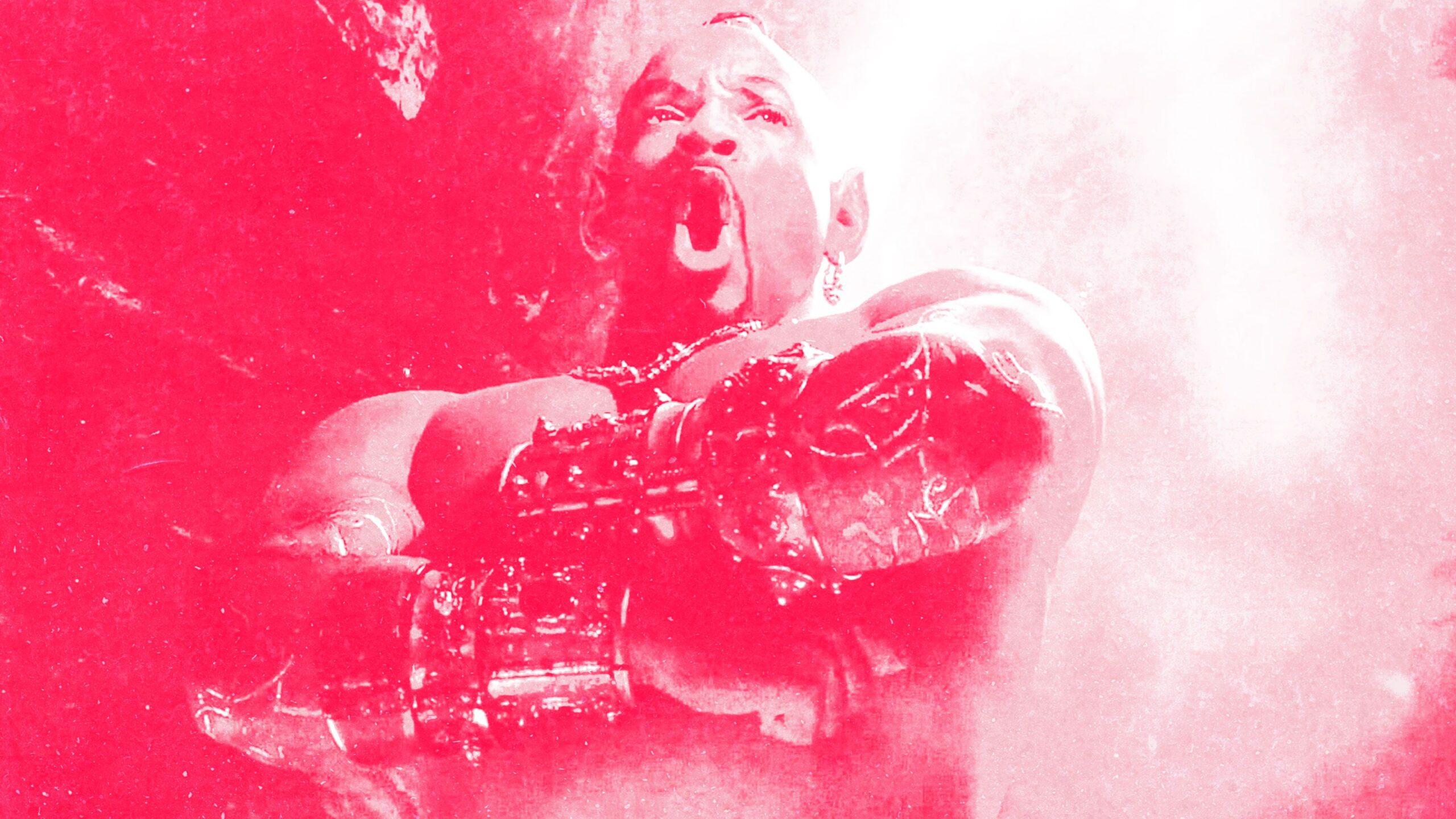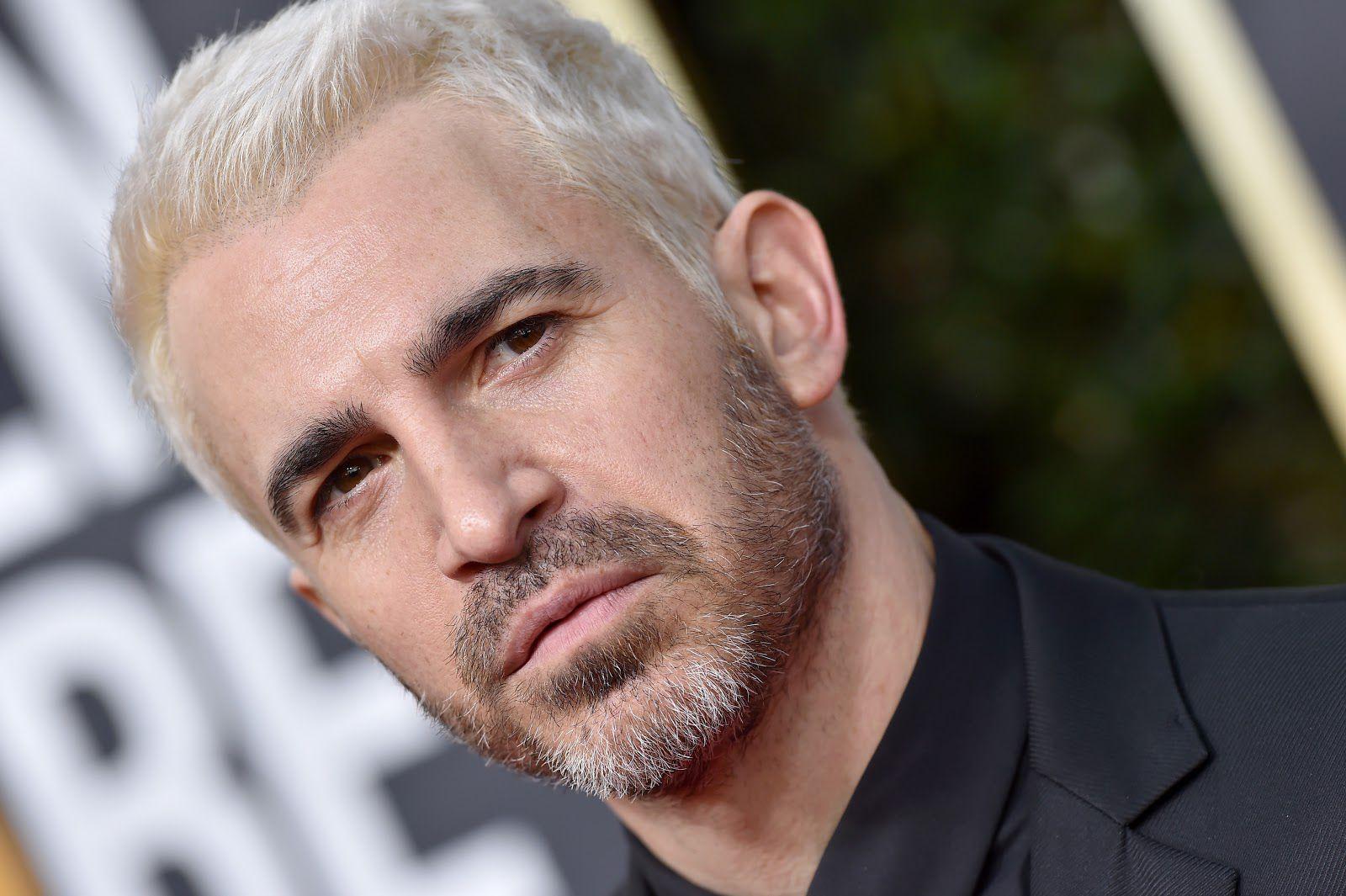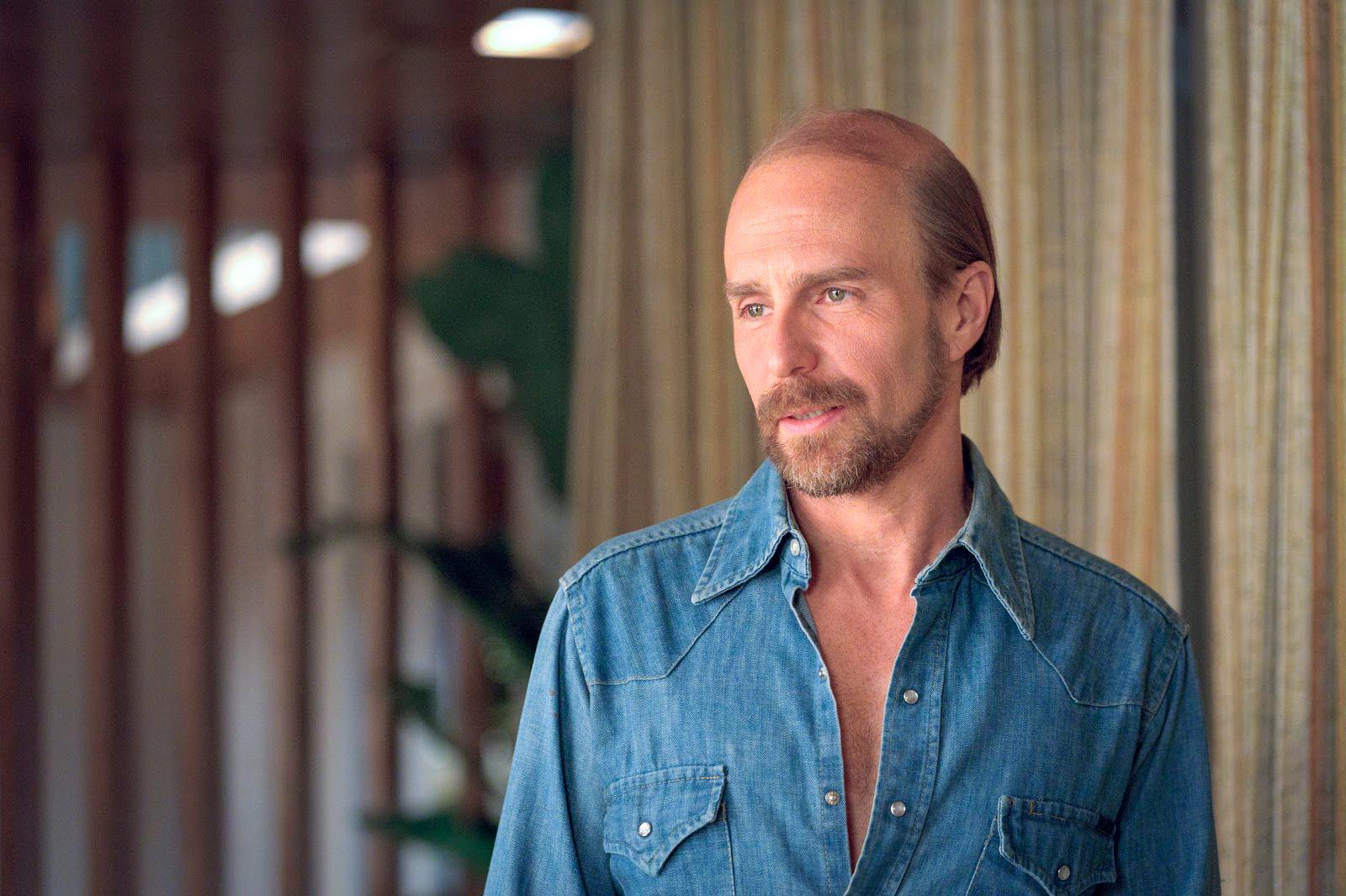Let’s start with a simple fact: There is a lot of pop culture out there in 2019. There were 495 scripted TV shows produced in 2018, a number that will likely rise this year; now also in the movie biz, Netflix is pumping those babies out on a near-weekly basis; major album releases come at a blinding pace, with little warning; and on top of all that, the internet is a bottomless source of content, as its many bizarre and bizarrely funny users turn something as seemingly banal as “the main character’s eyes in Alita: Battle Angel” into a full cottage industry of comedy.
This can be seen as a bad thing—how are we ever supposed to keep up?—but it’d be a mistake not to recognize the value of this era of Peak Content. In what other time could you see John Wick fight Boban Marjanovic, listen to Megan Thee Stallion’s first studio album, meet a Hot Priest, be officially introduced to Tilda Swinton’s daughter, and watch Lil Nas X ride a horse through Compton—all on the same day? In 2019, there has been more culture than ever—which we choose to receive, at least for today, as more enjoyable culture than ever.
Welcome to The Ringer’s 100 Best Moments in Culture in 2019 So Far, an exhaustive ranking of everything good that has happened this year in film, TV, celebrity news, and memedom. This is a list that seeks to capture the tiny moments that made a giant impact—the things from the first half of this year that brought us immense joy, that made us feel alive, and that will live on in our hearts and minds for years to come. Over the next week we’ll unveil our favorite moments, putting them in context, reminiscing on their importance, all while counting down to the best moment of the year. The first six months of 2019 have been a long, content-filled journey; now that we’re on the other side of it, it’s time to celebrate.

100. A very blue, very muscular, very horny Genie played by Will Smith steals hearts and minds—but mostly minds—in Aladdin (May 24)
Andrew Gruttadaro: You might accuse me of slut-shaming Genie from Aladdin, and you know—maybe I am! What of it? I liked it better when I could watch this movie and not be forced to think about Genie having sex—how that would even work; how a child between a woman and a genie could ever come out looking normal.
The new Aladdin begins with a scene in which Smith is a sailor with a very unkempt beard (it also has beads in it), who tells his two children the story of Aladdin to convince them that actually their boat isn’t a piece of crap. By the end of the movie, we learn that this sailor is Genie, in his new life with Dalia. They had sex, at least twice, and they had the kids—who by all accounts seem to have all of their limbs. They got a boat. They’re traveling the world, living their dreams. I’m glad they’re happy. Because I’m not. [Originally published May 28]
99. Adam Sandler’s tribute to Chris Farley on Saturday Night Live (May 4)
Rob Harvilla: For his final act Saturday night, Adam Sandler did something even more surprising. Specifically, he sang a shaggy and phenomenally tender song about Chris Farley, his old castmate and dearly departed friend. (His quite good 2018 Netflix comedy special 100% Fresh peaks with the same tune.) It was a disarmingly beautiful moment, sounding both improvised and deeply heartfelt, a teary-eyed tribute that captured both the comedy and the tragedy of one of the show’s other most famous cast members from the ’90s. “After a show he’d drink a quart of Jack Daniel’s and stick the bottle right up his ass,” Sandler sang, a line that always gets a laugh, and always hurts, too. [May 5]
98. Rami Malek (terrifyingly) lists all the things he loves (January 15)
And then, he was cast as a Bond villain.
97. Linda Cardellini and Christina Applegate team up in Dead to Me (May 3)
Ben Lindbergh: Dead to Me is like Big Little Lies with a smaller cast but bigger lies. It can’t compete with HBO in the size of its mansions, the picturesqueness of its beaches, or the quantity of its wine glasses, but it does have a draw that makes it memorable despite its similarity to other coastal, twist-filled traumedies: the endearing, deadly, and indivisible duo of Jen (Applegate) and Judy (Cardellini).
Jen is a mother of two whose husband was recently killed in a car crash. Judy is a seemingly kindred soul she meets at a bereavement support group. Lacking close confidantes, the two bond in a way that’s difficult to do in adulthood. Jen has a temper problem. Judy is impulsive and, unlike Jen, often unassertive. Neither knows how to be herself until they teach other. Together they confront their recent losses; their mutual loneliness; their problems in past relationships; the pitfalls of parenting a teenager; their struggles with infertility and body image; and, eventually, the secrets they’re afraid to reveal even to a true friend and confessor. It’s a real, rare, layered relationship at the core of a cliffhanger-filled first season, and it’s a better reason to binge than the series’ somewhat pulpy plot.
96. Snapchat’s Baby Face filter (May 8)
95. Chris Messina goes blond at the Golden Globes (January 6)

Amelia Wedemeyer: In one dye job, Chris Messina went from suburban dad picking up Jamba Juice for the entire soccer team to evil tech billionaire who isn’t afraid to test on humans. And I mean that in a very good way.
94. Our Planet is amazing—and amazingly sad (April 7)
Alison Herman: Our Planet distinguishes itself by emphasizing nature’s fragility as much as its beauty. Attenborough’s script is deeply concerned with the immediate effects and potential fallout of climate change. Forests and ice caps are shown shrinking from space to emphasize the sheer scale of humankind’s destruction; animals are depicted suffering the consequences of limited resources to show the intimate and devastating impact of global warming. So distressing are certain passages of Our Planet that Netflix issued a content warning for certain scenes that might disturb sensitive viewers, complete with time stamps. An interlude featuring walruses, overcrowded by vanishing sea ice onto a rocky beach, tumbling off a sheer cliff face to their likely deaths has already become infamous. Emotional trauma is an occupational hazard more commonly associated with slasher films than ecological surveys, but in this case the heads up is warranted. [April 12]
93. The Yesterday trailer asks, “What if the Beatles never happened?” (February 12)
Andrew Gruttadaro: OK, so: If Paul McCartney doesn’t exist, that means he never makes “The Girl Is Mine” with Michael Jackson in 1982, which means a couple more things. One, that the world never gets to hear him play-fight over a girl (“She told me I was her forever lover, don’t you remember?” says Sir Paul McCartney). But more importantly, if that song never gets made, then Brandy and Monica never remake it with “The Boy Is Mine” in 1998. And maybe Brandy still would’ve reached a high level of fame without that no. 1 hit, but probably not, which means she wouldn’t have been famous enough for her younger brother, Ray J, to ride her coattails. And if Ray J never gets famous, we never get “Sexy Can I.” We never get “Danger smashed the homie.” We never get the Ray J moving hat meme. And ladies and gentlemen, if Ray J never gets famous, he never dates—and makes a sex tape with—Kim Kardashian. And you know what happens if Kim Kardashian never makes a sex tape. It seems obvious to say that the erasure of the Beatles would deeply change the landscape of pop culture, but seriously: The Kardashians maybe don’t exist without the Beatles. [February 14]
92. Maya Rudolph sings “Eternal Flame” in Wine Country (May 8)
Amanda Dobbins: They don’t like to publicize it, but the Mission Statement on the original Netflix deck was “to provide opportunities to hang out with Maya Rudolph while she belts out a Bangles classic.” Thank you, Netflix.
91. Jodie Comer to Graham Norton: “She quietly whispered in my ear, ‘Will you strangle me?’” (April 19)
90. The return of Bill Callahan (May 30)
Lindsay Zoladz: When the roving, seven-song Apocalypse came out a little less than a decade ago, it would have been difficult to imagine Callahan having much to say about the glories of staying in one place and loving the members of his small, traditional family unit; after all, this was the guy extolling the virtues of just “riding for the feeling,” no particular destination in mind. But people change in unexpected ways: Shepherd in a Sheepskin Vest, his most domestic record, is also his longest in ages, spanning 20 tracks over more than an hour. Not every one of them feels essential, especially toward the middle of the album, but you get the sense that the whole point of Shepherd was for Callahan to kick his shoes off and stretch out, the way one does with abandon in the individual comfort of his own home. [June 11]
89. Sam Rockwell’s hair in Fosse/Verdon (April 9)

88. Charly Bliss’s “Capacity” (February 6)
Lindsay Zoladz: “Capacity,” is poppier than anything Charly Bliss has done before, but its lyrics are biting and insightful. “I’m at capacity, I’m spilling out of me,” Hendricks sings, her vocals hopscotching along with a candy-coated synth line. She has called “Capacity” “a song about wanting to kill your inner people-pleaser,” but it’s also a shot fired at the normalized exhaustion of late capitalism and the conditioning of “triple-overtime ambition.” “I can barely keep myself afloat when I’m not saving you,” Hendricks sings. By its stirring bridge, “Capacity” has become something deeply needed in our modern moment: a song about breaking up with burnout. [May 9]
87. The Phoenix Fire Department rescues 74-year-old Katalin Metro from Piestewa Peak and it ... does not go as planned (June 4)
86. Countess Luann tastes the soup at her community service on The Real Housewives of New York (March 27)
Juliet Litman: Luann de Lesseps is an original cast member of the Real Housewives of New York. She has staked her celebrity on being a propriety expert, a claim loosely tied to the fact that she once had a countess title as a result of marrying Count Alexandre de Lesseps. (Alex’s family built the Suez Canal way back in the 1860s.) She got the title by marriage, and used it to launch any notions that she could be an expert on etiquette. In RHONY reality, her claims date back to Season 1 when she delivered an impromptu etiquette lesson for Bethenny on a casual night out for the duo. Bethenny, great sport that she was back then, just went with it. Ever since, RHONY fans have embraced Luann’s preposterous claim that she is a 21st century Emily Post, which is why her songs “Money Can’t Buy You Class” and “Chic C’est La Vie” have become camp classics for all Bravo fans.
And yet, Luann is either responsible or involved in the most objectively offensive moments of the show. The latest moment came earlier this season when Luann allowed the Bravo cameras to follow her to court-ordered community service. As a part of her probation, a result of a 2017 arrest for disorderly intoxication, she was serving soup to people in need. She was ordered not to taste the soup. But Luann did not listen—Luann tasted soup intended for the needy. Moments like these are pivotal on reality TV; small as it might’ve been, it forever shattered the myth that Luann has any kind of code.

85. Kingdom Hearts III actually, finally comes out (January 25)
Ben Lindbergh: It’s probably possible to attain a total understanding of the story of Kingdom Hearts, which has stretched over about a dozen games released on roughly seven platforms in a span of 17 years and approximately 200 hours of playtime. (Specifying precisely how many Kingdom Hearts games there are, or on how many platforms they’ve appeared, raises thorny ontological questions about what qualifies as a game.) It’s just a matter of how much time and effort it takes to reach that level of enlightenment, and whether the research is worth the reward. The good news is that even though the latest sequel’s inscrutable story will strike some sizable proportion of players as hot nonsense, the game is still good. And that dichotomy exposes both the best and the worst thing about video games: Given a fun foundation of compelling mechanics, making sense is still optional. [February 4]
84. When John Mulaney and Pete Davidson reviewed The Mule on SNL (January 19)
83. Tyler, the Creator’s Igor (May 17)
Rob Harvilla: Igor will likely take a dozen or so listens to fully sink in, very much by design—it’s yet one more indulgence in a dazzling career composed of nothing but. It is very arguable that this person no longer deserves your attention, sustained or otherwise. It is very probable that he still has your attention anyway, despite everything, or maybe—definitely—because of it. [May 18]
82. Brad Pitt goes to a County Supervisors meeting at LACMA to profess his love for architecture (April 9)
Amanda Dobbins: Maybe the greatest celebrity love story of our time—right up there with Prince Harry and Meghan Markle, or Drake and the Cheesecake Factory—is Brad Pitt’s relationship with architecture. It has been a decades-long affair: America’s heartthrob has befriended Frank Gehry and attempted to build a hotel in Dubai; his (failed) philanthropic efforts, post-breakup coping mechanisms, and even rumored rebound relationships all link back to design in some way. Not one, but two of Brad Pitt’s ex-wives—that would be Jennifer Aniston and Angelina Jolie, two of the most famous actresses on the planet—made the same joke to the same magazine about finally having a say in decor post-divorce. Our guy walks the walk! So imagine the design community’s delight when Brad “Design” Pitt showed up at a county board meeting to express his support of a Los Angeles County Museum of Art redesign. “I love architecture, so I’m excited to be here,” he told the crowd. Eventually the county supervisor had to cut him off. May we all live our lives, and our loves, out loud like Brad Pitt.
81. Martin Lawrence’s dolphin tour in The Beach Bum (March 29)
Tyler Parker: Words like star power and charisma and magnetism get thrown around too often when people talk about actors, but I swear on everything I love, you will not stop having a great time when Martin Lawrence is on the screen. You’re just so glad he’s there. We need more of him. He hasn’t lost a step. He’s still light on his feet, and is something like a dancer, something like a P.E. teacher. He’s having a ball, too. Some of his lines are wild:
- “If they really wanna see the dolphin, you hear it in their voice.”
- “It’s orgy season, so hopefully we get to see something. Some real wild stuff.”
- (Talking about dolphins) “They don’t want to hurt you. They just want to love you.”
- (Talking about his vehicle that uses orange construction fencing for doors) “I wouldn’t have all this if not for dolphin touring.”
- (Talking about himself) “You will get whacked. Fucking with. Cap. Wack.”
[April 4]
80. Cobra Kai Season 2 (April 24)
79. 2 Chainz explains/complains about taxes on “Sam” (March 1)
Andrew Gruttadaro: “What are taxes, for real, though?” 2 Chainz plainly, amusingly asks in the middle of the hook on “Sam,” the closing track of his triumphant 2019 album, Rap or Go to the League. The rapper is skeptical that the funds taken from him are being properly allocated, but above all, he just really hates looking at a paycheck and seeing how much of it goes straight to the feds (a universal feeling, no matter the size of the check).
Yet no moment in music has brought me more joy than the last 90 seconds of “Sam”—of the whole album!—when 2 Chainz gives an oral presentation on taxes. “A tax is a mandatory financial charge / Imposed upon a taxpayer by a governmental organization / In order to fund various public expenditures,” he says without fanfare, somehow still skating on B Clark’s beat. He goes on, in what I’m sure is the best instance of rounding up to ever occur in music: “You make over five hundred thousand a year / Sam want thirty-seven percent of that / Which is almost forty percent / Which is almost fifty percent!”
In all, “Sam” is a clever song about the irony 2 Chainz sees in his life: Once poor and ignored by the government, he’s now rich and fully acknowledged by the government—to the tune of 37 percent. But the legacy of “Sam” will forever be this cold, seemingly out-of-place treatise—and the funny math that comes with it.
78. Amazing Grace (and specifically, Mick Jagger’s awkward white man dancing) (April 5)
Alison Herman: So powerful is Aretha Franklin’s performance of the gospel album that gives Amazing Grace its name, so all-encompassing the energy of the choir and musicians who accompany her, that it may be a while before the viewer notices a certain audience member. He’s clearly not like the rest of the crowd, an enthusiastic yet everyday group of parishioners at Watts’s New Temple Missionary Baptist Church. He’s a gangly white guy, doing an awkward shimmy through an almost entirely black audience. Clad in a T-shirt and jeans, he kind of looks like Mick Jagger. As he moves towards the front of the room and therefore the camera, you realize he is, in fact, Mick Jagger. In his day job, he’s the coolest man alive; in Amazing Grace, he’s a peripheral dweeb.
Amazing Grace, both the album and the long-delayed concert film of its making, was recorded in 1972. The movie’s opening sequence takes care to establish just how famous Franklin was at the time; Amazing Grace was made in a post-”Respect,” post-”Think” universe. This background knowledge makes Franklin’s piety all the more striking, a Beyoncé-level superstar choosing to present herself in a practically virginal white robe, a supplicant first and foremost. It also makes Jagger’s cameo as significant as it is hilarious. A rock god in a house of worship sounds like the setup to a punchline, but Jagger came to New Temple for the same reason as everyone else: to witness history. In the face of Franklin’s raw talent, even the frontman of the Rolling Stones is just another fan there to soak up the magic.
77. The Sublimeassaince (May 14)
Kate Knibbs: Sublime is not for thinking. Sublime is for drinking, for lying in the sun, for backyards and docks and bonfires, for being a young idiot. Sublime is for the summer—if all signs are to be believed, this summer in particular. [May 14]
76. André Holland and Kyle MacLachlan’s sauna negotiation in High Flying Bird (February 8)
Adam Nayman: The self-reflexive aspects of High Flying Bird are fun to tease out. It’s easy enough to see a link between Ray, a virtuoso negotiator whose experiences have left him with a weathered cynicism about his chosen field, and Soderbergh, who also knows a thing or two about being the Rookie of the Year. Back in 1989, he was the new wunderkind on the block after the watershed, game-changing release of Sex, Lies, and Videotape. It’s a position mirrored in the character of Erick, whose on-court potential is about to bump up against the realities of a league more interested in cultivating longevity for network contracts than individual careers. The Cartesian conceit that a sports agent and his star represent some shifting, codependent balance of brains and brawn is familiar from inside-base/foot/basketball tales like Jerry Maguire and Moneyball, both of which High Flying Bird evokes in a superficial way without ever copying. Those stories are fantasies about showing their characters—and their audiences—the money while also reckoning with the love of the game. In Soderbergh’s harder-edged, scrupulously realistic rendering of the pro sports industrial complex, the game isn’t being played and the business itself becomes the only real opponent. [February 8]
